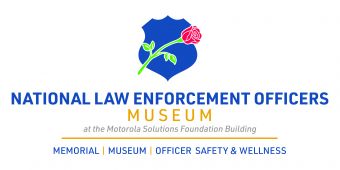- Education Topics
- Achievement Gap
- Alternative Education
- American Education Awards
- Assessment & Evaluation
- Education during COVID-19
- Education Economics
- Education Environment
- Education in the United States during COVID-19
- Education Issues
- Education Policy
- Education Psychology
- Education Scandals and Controversies
- Education Reform
- Education Theory
- Education Worldwide
- Educational Leadership
- Educational Philosophy
- Educational Research
- Educational Technology
- Federal Education Legislation
- Higher Education Worldwide
- Homeless Education
- Homeschooling in the United States
- Migrant Education
- Neglected/Deliquent Students
- Pedagogy
- Sociology of Education
- Special Needs
- National Directories
- After School Programs
- Alternative Schools
- The Arts
- At-Risk Students
- Camps
- Camp Services
- Colleges & Universities
- Counties
- Driving Schools
- Educational Businesses
- Financial Aid
- Higher Education
- International Programs
- Jewish Community Centers
- K-12 Schools
- Language Studies
- Libraries
- Organizations
- Preschools
- Professional Development
- Prom Services
- School Assemblies
- School Districts
- School Field Trips
- School Health
- School Supplies
- School Travel
- School Vendors
- Schools Worldwide
- Special Education
- Special Needs
- Study Abroad
- Teaching Abroad
- Volunteer Programs
- Youth Sports
- For Schools
- Academic Standards
- Assembly Programs
- Blue Ribbon Schools Program
- Educational Accreditation
- Educational Television Channels
- Education in the United States
- History of Education in the United States
- Reading Education in the U.S.
- School Grades
- School Meal Programs
- School Types
- School Uniforms
- Special Education in the United States
- Systems of Formal Education
- U.S. Education Legislation
- For Teachers
- Academic Dishonesty
- Childcare State Licensing Requirements
- Classroom Management
- Education Subjects
- Educational Practices
- Interdisciplinary Teaching
- Job and Interview Tips
- Lesson Plans | Grades
- Professional Development
- State Curriculum Standards
- Substitute Teaching
- Teacher Salary
- Teacher Training Programs
- Teaching Methods
- Training and Certification
- For Students
- Academic Competitions
- Admissions Testing
- At-Risk Students
- Career Planning
- College Admissions
- Drivers License
- Educational Programs
- Educational Television
- High School Dropouts
- Higher Education
- School Health
- Senior Proms
- Sex Education
- Standardized Testing
- Student Financial Aid
- Student Television Stations
- Summer Learning Loss
National Law Enforcement Museum

Basic Information
Address: 444 E St NW, Washington, DC 20001
Phone Number: 202 737-3400
Additional Information
Days and Hours: Open to the General Public Friday and Saturday from 10 AM - 5 PM, Open to group reservations only Sunday, Tuesday - Thursday from 10 AM - 5 PM, Closed Monday
Description:
Over a decade of planning and persistence in the making, the National Law Enforcement Museum has opened its doors to the public. Finally, citizens and law enforcement professionals from diverse perspectives and backgrounds will have a place to share in the vibrant story of American law enforcement. The Museum's befitting location at Judiciary Square in our nation's capital marks the first time a national museum dedicated to telling the story of American law enforcement will have a permanent home. Within the walls of the Museum's strikingly contemporary exterior, artifacts from our collection of more than 25,000 objects tell the story of American law enforcement - past, present, and future - and engage visitors of all ages in memorable, immersive, and experiential exhibits. More importantly, we're proud that the Museum will serve as a platform for constructive dialog to help strengthen relationships between law enforcement and the communities they serve.
Grade Levels:
K-5
6-8
9-12
K-5
6-8
9-12
Admission/Tickets: Admission is required, special group rates are available by request. Workshops, tours, and simulator experiences for group incur an additional charge per participant.
Student/Staff Ratio: 10/1 recommended
Group Requirements: Booking must be made at least 10 days prior to visit.
Group Inquiries and Bookings: GroupTours@nleomf.org
Exhibits: Learn more about the museum's permanent and temporary exhibits, and explore online exhibit offerings here: https://nleomf.org/museum/exhibits/.
Reservations Needed: Yes
Additional Information:
To explore the museum's in-person educational and workshop offerings, please visit https://nleomf.org/program/workshops/ and fill out the request form. For virtual classes, please visit https://nleomf.org/program/virtual-classes/ and fill out the request form.




